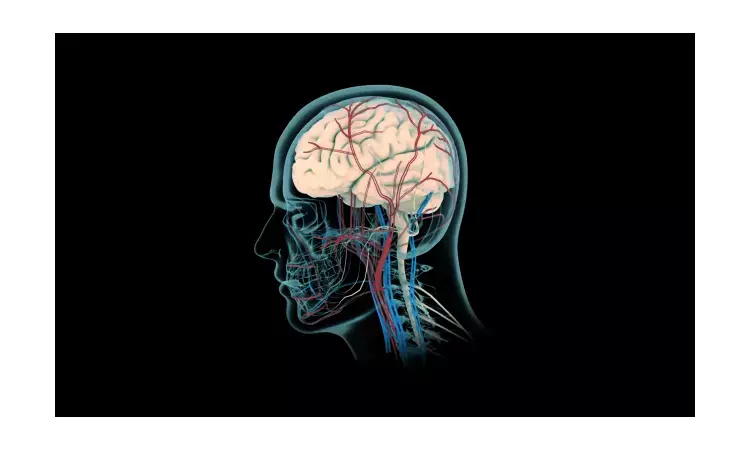- Home
- Medical news & Guidelines
- Anesthesiology
- Cardiology and CTVS
- Critical Care
- Dentistry
- Dermatology
- Diabetes and Endocrinology
- ENT
- Gastroenterology
- Medicine
- Nephrology
- Neurology
- Obstretics-Gynaecology
- Oncology
- Ophthalmology
- Orthopaedics
- Pediatrics-Neonatology
- Psychiatry
- Pulmonology
- Radiology
- Surgery
- Urology
- Laboratory Medicine
- Diet
- Nursing
- Paramedical
- Physiotherapy
- Health news
- Fact Check
- Bone Health Fact Check
- Brain Health Fact Check
- Cancer Related Fact Check
- Child Care Fact Check
- Dental and oral health fact check
- Diabetes and metabolic health fact check
- Diet and Nutrition Fact Check
- Eye and ENT Care Fact Check
- Fitness fact check
- Gut health fact check
- Heart health fact check
- Kidney health fact check
- Medical education fact check
- Men's health fact check
- Respiratory fact check
- Skin and hair care fact check
- Vaccine and Immunization fact check
- Women's health fact check
- AYUSH
- State News
- Andaman and Nicobar Islands
- Andhra Pradesh
- Arunachal Pradesh
- Assam
- Bihar
- Chandigarh
- Chattisgarh
- Dadra and Nagar Haveli
- Daman and Diu
- Delhi
- Goa
- Gujarat
- Haryana
- Himachal Pradesh
- Jammu & Kashmir
- Jharkhand
- Karnataka
- Kerala
- Ladakh
- Lakshadweep
- Madhya Pradesh
- Maharashtra
- Manipur
- Meghalaya
- Mizoram
- Nagaland
- Odisha
- Puducherry
- Punjab
- Rajasthan
- Sikkim
- Tamil Nadu
- Telangana
- Tripura
- Uttar Pradesh
- Uttrakhand
- West Bengal
- Medical Education
- Industry
MRI findings reveal that treatment of sleep apnea reduces risk of dementia: JAMA

Brain MRI findings suggest treating people with obstructive sleep apnea could reduce their risk of dementia later in life in a new study by Dr Helena U. Zacharias and team. The study reported that a statistically significant association was found between increased obstructive sleep apnea (OSA) and increased brain White matter hyperintensities (WMH).
This study is published in JAMA Network.
White matter hyperintensities (WMH) are associated with an increased risk of dementia, cognitive decline, stroke, death, abnormal gait, disturbed balance, and depression. One of the contributing factors to WMH burden is chronic obstructive sleep apnea (OSA), a disorder highly prevalent in the general population.
The objective of the study was to evaluate potential associations between OSA and WMH burden.
The study was an analyses conducted in 529 study participants of the Study of Health in Pomerania–Trend baseline (SHIP-Trend-0) study with complete WMH, OSA, and important clinical data available. SHIP-Trend-0 is a general population–based, cross-sectional, observational study to facilitate the investigation of a large spectrum of common risk factors, subclinical disorders, and clinical diseases and their relationships among each other with patient recruitment from Western Pomerania, Germany, starting on September 1, 2008, with data collected until December 31, 2012. Data analysis was performed from February 1, 2019, to January 31, 2021. The primary outcome was WMH data automatically segmented from 1.5-T magnetic resonance images.
The results of the study were found to be
• A total of 529 study participants were included in the study (mean [SD] age, 52.15 [13.58] years; 282 female [53%]), a total of 209 (40%) or 102 (19%) individuals were diagnosed with OSA according to AHI or ODI criteria (mean [SD] AHI, 7.98 [12.55] events per hour; mean [SD] ODI, 3.75 [8.43] events per hour).
• Both AHI (β = 0.024; 95% CI, 0.011-0.037; P <.001) and ODI (β = 0.033; 95% CI, 0.014-0.051; P <. 001) were significantly associated with brain WMH volumes.
• These associations remained even in the presence of additional vascular, metabolic, and lifestyle WMH risk factors.
• Region-specific WMH analyses found the strongest associations between periventricular frontal WMH volumes and both AHI (β = 0.0275; 95% CI, 0.013-0.042, P < .001) and ODI (β = 0.0381; 95% CI, 0.016-0.060, P < .001) as well as periventricular dorsal WMH volumes and AHI (β = 0.0165; 95% CI, 0.004-0.029, P = .008).
Dr Zacharias, and team concluded that "This study found significant associations between OSA and brain WMHs, indicating a novel, potentially treatable WMH pathomechanism."
For further information: https://jamanetwork.com/journals/jamanetworkopen/fullarticle/2784763
Medical Dialogues consists of a team of passionate medical/scientific writers, led by doctors and healthcare researchers. Our team efforts to bring you updated and timely news about the important happenings of the medical and healthcare sector. Our editorial team can be reached at editorial@medicaldialogues.in.
Dr Kamal Kant Kohli-MBBS, DTCD- a chest specialist with more than 30 years of practice and a flair for writing clinical articles, Dr Kamal Kant Kohli joined Medical Dialogues as a Chief Editor of Medical News. Besides writing articles, as an editor, he proofreads and verifies all the medical content published on Medical Dialogues including those coming from journals, studies,medical conferences,guidelines etc. Email: drkohli@medicaldialogues.in. Contact no. 011-43720751


